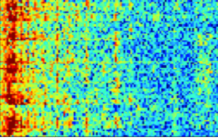The relationship between diet and cancer has been a subject of extensive research, yet significant gaps remain, particularly when considering the variety of different dietary patterns and food sourcing. This article explores the known impacts of various diets on cancer prevalence while highlighting areas where research is lacking. Additionally, it examines recent studies on potential links between COVID-19 vaccination status and cancer prevalence.
Dietary Patterns and Cancer
Vegan and Vegetarian Diets:
– Research: These diets are associated with lower risks of certain cancers, particularly colorectal cancer, due to high fiber intake and reduced red meat consumption (Tantamango-Bartley et al., 2013; Key et al., 2009).
– Gaps: There’s less clarity on the impact of these diets on all cancer types, especially when considering long-term nutritional deficiencies like B12.
Ketogenic Diet:
– Research: While it might have therapeutic potential for some cancers by limiting glucose availability, its high-fat, low-fiber nature could increase the risk of other cancers (Allen et al., 2014; Farvid et al., 2018).
– Gaps: Longitudinal studies on the keto diet’s effect on cancer risk over a lifetime are sparse.
Mediterranean Diet:
– Research: This diet is linked to reduced cancer risks due to its balanced nutrients, with an emphasis on plant-based foods (Schwingshackl & Hoffmann, 2014).
– Gaps: More research is needed on how different variations of this diet (e.g., high vs. low fish intake) affect specific cancers.
Paleo Diet:
– Research: Mixed due to its variable meat intake, potentially increasing or decreasing cancer risk based on meat quality and quantity.
– Gaps: The impact of excluding grains and dairy on cancer risk is not well-documented.
Mass-Produced vs. Naturally Produced Foods
Dairy and Meat:
– Research: Mass-produced foods often contain additives, hormones, and antibiotics, potentially increasing cancer risk (Giovannucci et al., 2003; Bouvard et al., 2015).
– Gaps: The long-term health effects of these compounds, especially in combination with other environmental factors, are under-studied. The benefits of naturally produced foods, like grass-fed meats or organic dairy, are also not comprehensively quantified.
Research Gaps in Dietary Impact on Cancer
– Longitudinal Studies: There’s a need for more long-term studies to assess the cumulative impact of dietary choices.
– Nutrient Interactions: How nutrients from different diets interact with genetic predispositions or other environmental factors is understudied.
– Microbiome: The role of diet in altering gut microbiota and its implications for cancer risk is an emerging area, with much still unknown.
COVID-19, Vaccination Status, and Cancer Prevalence
Recent studies have begun to explore whether there’s a correlation between COVID-19 infection, vaccination status, and cancer prevalence:
1. Vaccinated Population:
– Research: – A study from Hong Kong (Nature Communications, as referenced in web results) showed that individuals with complete vaccination or booster doses had a lower risk of severe health outcomes, including major cardiovascular diseases and all-cause mortality, following SARS-CoV-2 infection. However, this study primarily looked at mortality and health consequences rather than new cancer diagnoses.
– No direct, conclusive evidence from recent studies specifically links vaccination status to an increase in cancer prevalence. Instead, research tends to focus on the protective effects of vaccines against severe disease.
– Gaps: – There’s a notable lack of research explicitly examining cancer incidence rates post-COVID-19 vaccination. Studies are more focused on immediate health outcomes rather than long-term cancer risks.
2. Unvaccinated Population: – Research: – Data from unvaccinated populations early in the pandemic showed a twofold increased risk of adverse outcomes, including mortality, in cancer patients with COVID-19 compared to those without cancer (eLife, 2022, as cited in web results).
– There’s no direct evidence correlating unvaccinated status with increased cancer risk post-COVID-19, but the increased severity of the disease in cancer patients suggests a complex relationship between immune response, infection, and cancer progression.
– Gaps: – Similar to vaccinated groups, there’s a dearth of studies directly linking unvaccinated status with cancer incidence post-COVID-19. The focus has been on disease severity and outcomes rather than cancer development.
Discussion
The investigation into dietary impacts on cancer reveals a landscape rich with potential preventive strategies but also fraught with research gaps. The correlation between COVID-19, vaccination, and cancer is even less explored, with available studies focusing more on immediate health impacts rather than long-term cancer risks.
– Future Research Needs: – Comprehensive studies that follow vaccinated and unvaccinated populations over time to monitor cancer incidence.
– Detailed analysis of dietary patterns in relation to cancer types, considering both genetic and environmental factors.
– Research into how dietary choices interact with the immune response to infections like COVID-19, potentially influencing cancer risk.
Conclusion
Diet undeniably plays a role in cancer prevention and possibly in its progression, but there’s much science still don’t understand. The impact of the COVID-19 pandemic on cancer prevalence among vaccinated and unvaccinated populations is an area ripe for further exploration, with current research not yet providing a clear picture. Both areas highlight the importance of continued, nuanced research to guide public health policies and individual dietary choices.
References:
– Allen, B. G., Bhatia, S. K., Anderson, C. M., Eichenberger-Gilmore, J. M., Sibenaller, Z. A., Mapuskar, K. A., et al. & Buatti, J. M. (2014). Ketogenic diets as an adjuvant cancer therapy: History and potential mechanism. Redox biology, 2, 963-970.
– Bouvard, V., Loomis, D., Guyton, K. Z., Grosse, Y., Ghissassi, F. E., Benbrahim-Tallaa, L., … & Straif, K. (2015). Carcinogenicity of consumption of red and processed meat. The Lancet Oncology, 16(16), 1599-1600.
– Farvid, M. S., Stern, M. C., Norat, T., & Sampson, L. (2018). Consumption of red and processed meat and breast cancer incidence: A systematic review and meta-analysis of prospective studies. International Journal of Cancer, 143(11), 2787-2799.
– Giovannucci, E., Pollak, M., Platz, E. A., Willett, W. C., Stampfer, M. J., Majeed, N., … & Hankinson, S. E. (2003). Insulin-like growth factor I (IGF-I), IGF-binding protein-3 and the risk of colorectal adenoma and cancer in the Nurses’ Health Study. Growth Hormone & IGF Research, 13(5), 243-251.
– Key, T. J., Appleby, P. N., Spencer, E. A., Travis, R. C., Roddam, A. W., & Allen, N. E. (2009). Cancer incidence in vegetarians: results from the European Prospective Investigation into Cancer and Nutrition (EPIC-Oxford). The American journal of clinical nutrition, 89(5), 1620S-1626S.
– Schwingshackl, L., & Hoffmann, G. (2014). Adherence to Mediterranean diet and risk of cancer: an updated systematic review and meta-analysis. Nutrients, 6(12), 5624-5635.
– Tantamango-Bartley, Y., Jaceldo-Siegl, K., Fan, J., & Fraser, G. (2013). Vegetarian diets and the incidence of cancer in a low-risk population. Cancer epidemiology, biomarkers & prevention, 22(2), 286-294.
![]()





